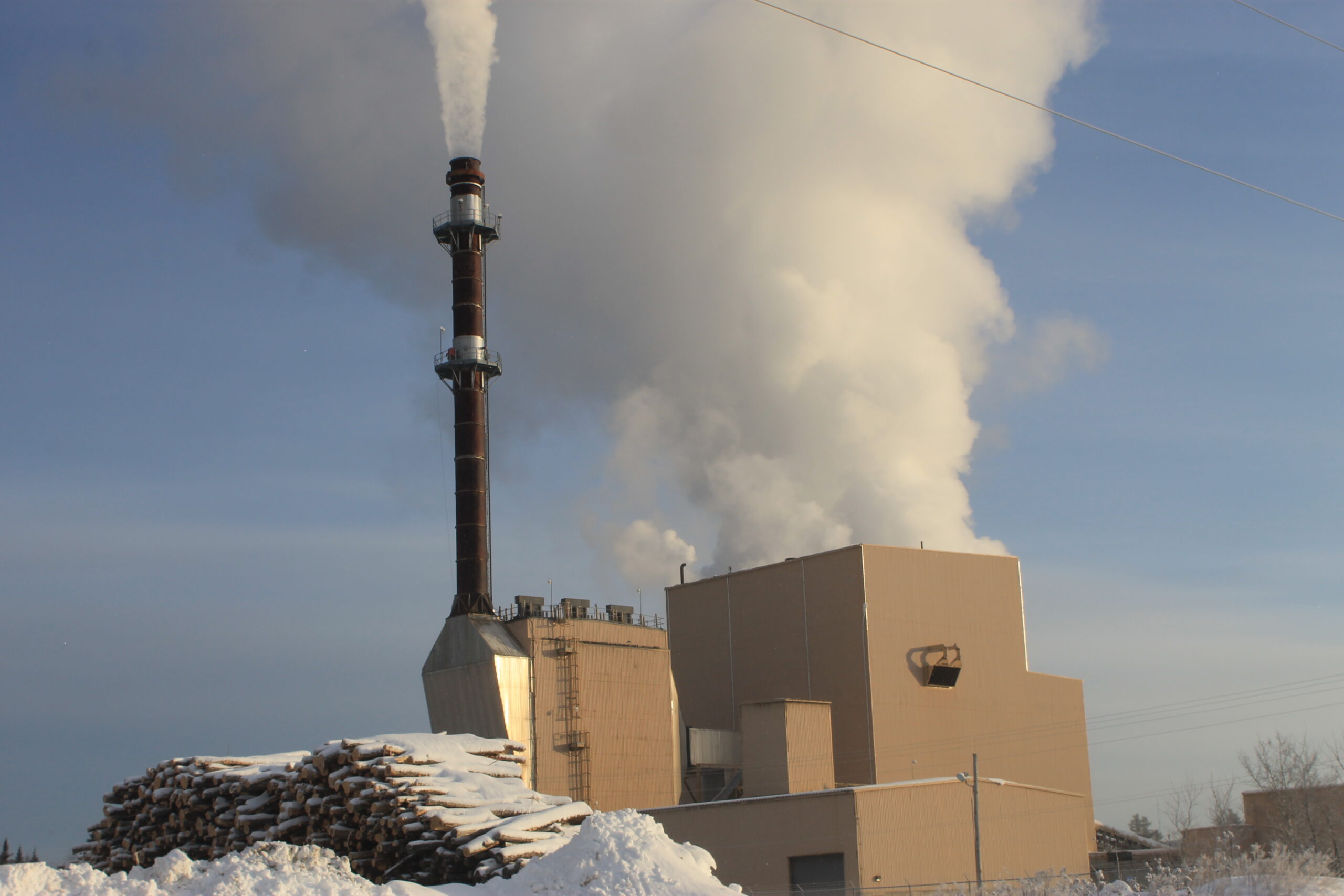
FORT FAIRFIELD, Maine — Aroostook County’s two biomass energy plants are facing a precarious future that could shake out this summer.
Depending on a range of factors, the ReEnergy biomass plants in Ashland and Fort Fairfield could shut down in September for an undetermined amount of time. But the company is hoping that some changes could buy the facilities time as they pursue potential “co-location” projects with business partners that could pave the way to longer-term financial sustainability.
One of four Maine biomass plants operated by New York-based ReEnergy, the Ashland and Fort Fairfield facilities have been particularly hit hard by low wholesale electricity prices, transmission fees and a decline in the value of renewable energy credits.
Last year, ReEnergy informed the operator of northern Maine’s power grid that the Ashland and Fort Fairfield plants could shut down in September if their revenue situation does not improve.
“While all four of ReEnergy’s biomass power facilities in Maine are vulnerable due to the weak market conditions, the Aroostook County facilities are suffering more hardship due to the fact that they must pay multiple levels of transmission charges, also known as ‘pancaked transmission charges,’ to wheel their power through New Brunswick to deliver it to the ISO-New England power grid,” said ReEnergy communications and government affairs director Sarah Boggess.
ReEnergy acquired the two facilities in 2011 and together they employ 45 people, in addition to supporting some 300 jobs in the forestry industry, which benefits from selling low-value wood from logging and lumber mills to the biomass plants.
The two Aroostook biomass plants sell renewable energy credits to Connecticut, requiring the export of power via the ISO grid, which is accessible to the grid in Aroostook County only by way of the New Brunswick power grid. At the same time that those credits are crucial to the company’s business, their value has declined over the last year, Boggess said.
Last October, ReEnergy issued a request for proposals seeking pitches from businesses to co-locate with the company’s Maine biomass plants in Ashland, Fort Fairfield, Livermore Falls and Stratton. The idea is that co-located manufacturing businesses can use lower-priced electricity and excess heat and hot water by setting up next to one of the biomass plants, which generate electricity with waste wood purchased from loggers and lumber mills.
The company previously said it could announce the results of the process this spring, although business discussions remain ongoing and there is the uncertainty over whether the two Aroostook plants can remain open long enough for co-location projects to get started.
“ReEnergy is engaged in confidential negotiations to finalize business terms with companies interested in co-locating next to each ReEnergy facility,” Boggess said in an email. “A co-located project, or projects, could purchase electricity and steam directly from the biomass plant, improving efficiency and allowing ReEnergy to have revenue certainty and the co-located project to have expense certainty.”
Boggess added that all four Maine ReEnergy plants are under consideration for co-location projects and it would likely take 18 to 24 months to bring a co-located project to fruition.
A co-location project could significantly help the finances of the biomass plants, but the company needs the plants on sound financial footings for co-location projects to proceed.
On June 5, ReEnergy and other organizations with the Northern Maine Electric Stakeholders Group formally asked the Maine Public Utilities Commission to issue a request for proposals for a long-term contract that would address issues such as the transmission charges and price stability.
Since March 2017, ReEnergy has had an energy sales agreement with Emera Maine under a procurement process with the PUC that allows ReEnergy to receive above-market prices for a portion of the output from the Ashland and Fort Fairfield plants.
That biomass subsidy program has provided “a lifeline for those facilities,” but they “would be uneconomic if the energy sales agreement expired and they were required to continue to pay transmission outcharges,” Boggess said.
Boggess added that Emera Maine is currently working with a consultant conducting due diligence on the financial conditions of the Ashland and Fort Fairfield plants.
Based on the current market conditions, Boggess said, both the Ashland and Fort Fairfield biomass plants would shut down on Oct. 1 if the transmission charges are not eliminated.
And unless there is a new long-term contract, along with an end of the transmission charges, the Fort Fairfield plant is likely to close on Oct. 1, Boggess said.
If the transmission charges were completely eliminated, the Ashland plant could “remain open for the foreseeable future” with “cash-flow being close to break-even, but still negative, in today’s market conditions,” Boggess said.
“The Ashland facility’s financial prospects are healthier for several reasons,” she said. Among them is that it is larger, processes more diverse biomass fuel, and was renovated in 2014.
If either or both of the plants close in October, they could still resume operations in the future, although any timeline would be uncertain.
Both the Ashland and Fort Fairfield plants could remain open “for a longer, defined period” after October if the outcharges are eliminated and if a new electricity sale agreement is secured through the PUC, Boggess said.
At least in the case of the transmission charges, Boggess said the company would need to know if they are being eliminated by Aug. 1, because it can take 8 weeks to use on-site biomass inventory.
Boggess said the company is aiming to keep the plants open to pursue the larger, long-term goal of attracting co-location manufacturing businesses, which would in turn help support the overall forestry industry.
“The prospect of a co-located project is much stronger if the biomass plant remains in operation and the fuel supply infrastructure remains in place.”




